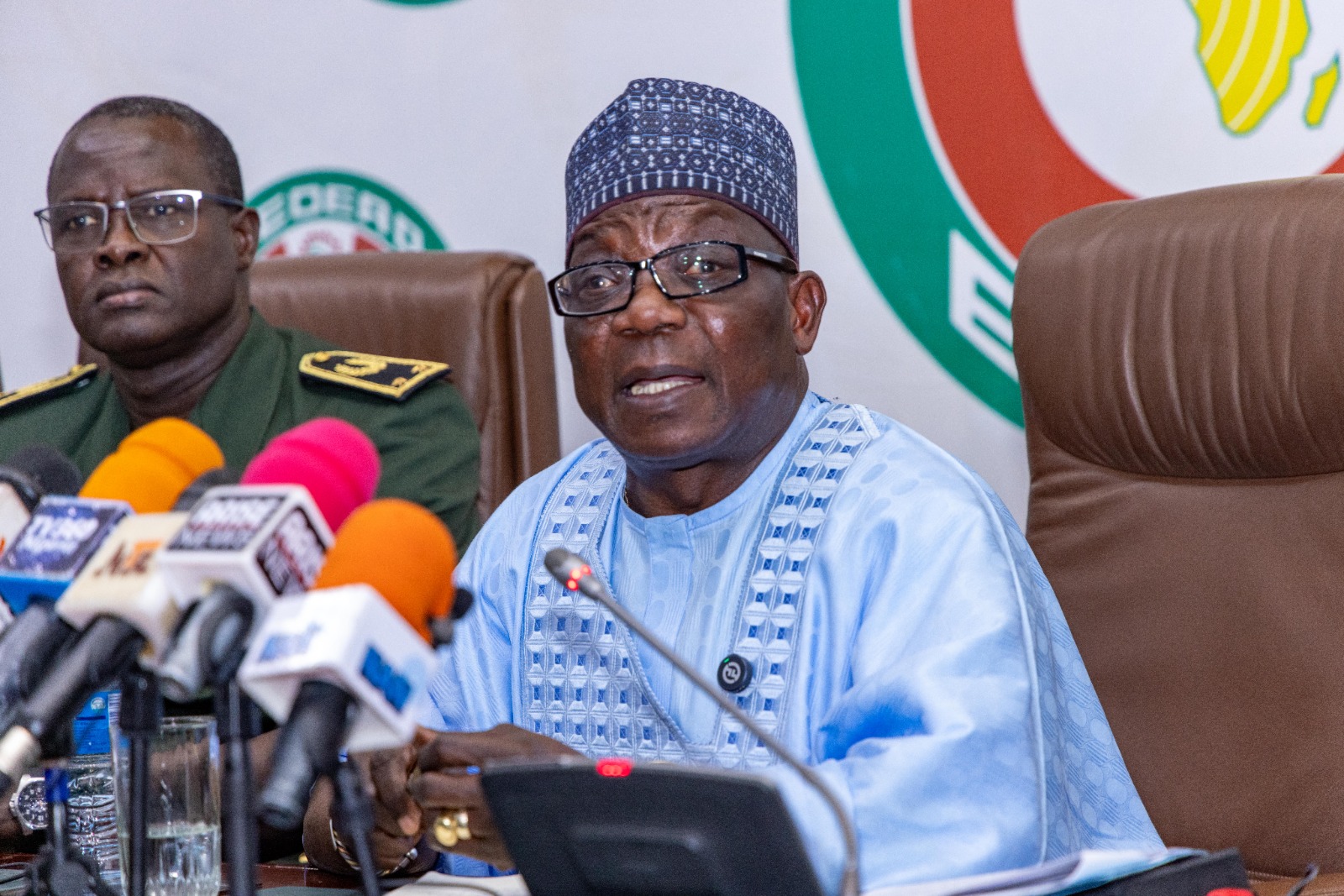ECOWAS intensifies efforts to fight terrorism and insecurity in the west African subregion
11 Mar, 2024ECOWAS is intensifying efforts to create a counter terrorism force to fight terrorism in the West African sub region.
The ECOWAS Commissioner of Political Affairs, Peace and Security Ambassador Abdel-Fatau Musah disclosed this to Journalists during the weekly press conference in Abuja, Nigeria, today Friday, March 8, 2024.
He said the decision to create a counter terrorism force was made by the Authority of Heads of States and Government during an extraordinary summit in Abuja.
Ambassador Musah added that the region’s Chiefs of Defence Staff have developed a concept of operations for the force and Ministers of Finance and Defence are expected to meet to work out the modalities to finance the counter terrorism force.
He said terrorism is undoubtedly the major existential threat confronting ECOWAS member states noting that “the threats facing the region are not confined to states but across borders and require cross border collaboration”.
To illustrate the impact of terrorism on people in the sub-region, he disclosed that in 2023, over 3500 incidents of terrorist attacks were recorded in the ECOWAS sub-region. They include close to 2000 in Burkina Faso, over 1044 in Mali and 500 in Niger, resulting in about 7000 fatalities in the three countries while a total of 4.8 million people face food insecurity, 2.4 million are internally displaced and close to 9000 schools closed.
Still on measures to fight terrorism, Ambassador Musah said the ECOWAS logistics depot at Lungi is at 98% completion. The depot is envisaged to provide support to ECOWAS peace support operations to effectively combat violent extremism and terrorist activities in the West African subregion.
On sustaining democracy, the Commissioner said “ECOWAS made the conscious choice because of the crisis in the sub-region to adopt a code of behaviour of member states which they are signatories to and so ECOWAS does not do anything outside protocols and instruments that have been agreed by all the 15 member states of our region” he said.
Ambassador Musah explained that liberal democracy as practiced in the region has at times been reduced to electoralism meaning that in between elections there is very little in terms of societal well-being creating conditions for social services, infrastructural development and inclusive governance. “Elections have become a do or die affair in some states, and this is what ECOWAS is fighting against”.
He said elections must enshrine democracy which must correlate with societal well-being, food security and basic infrastructure for citizens.
To this end he said ECOWAS has been trying to review the supplementary protocol on democracy and good governance to make sure that sitting presidents do not fiddle with their constitutions or electoral law to perpetuate themselves in power.
To protect fragile democracies, he said ECOWAS has been maintaining military missions in Gambia and Guinea Bissau while another is being contemplated in Sierra Leone following the last jail break and attempted takeover in that country.
Ambassador Musah emphasized that the strength of ECOWAS lies in all 15 member states working together and facing the challenges together.


















